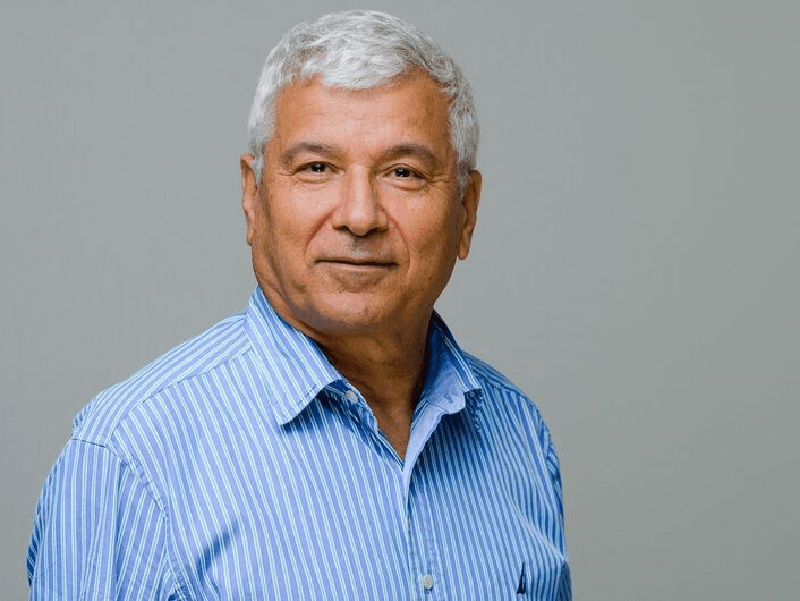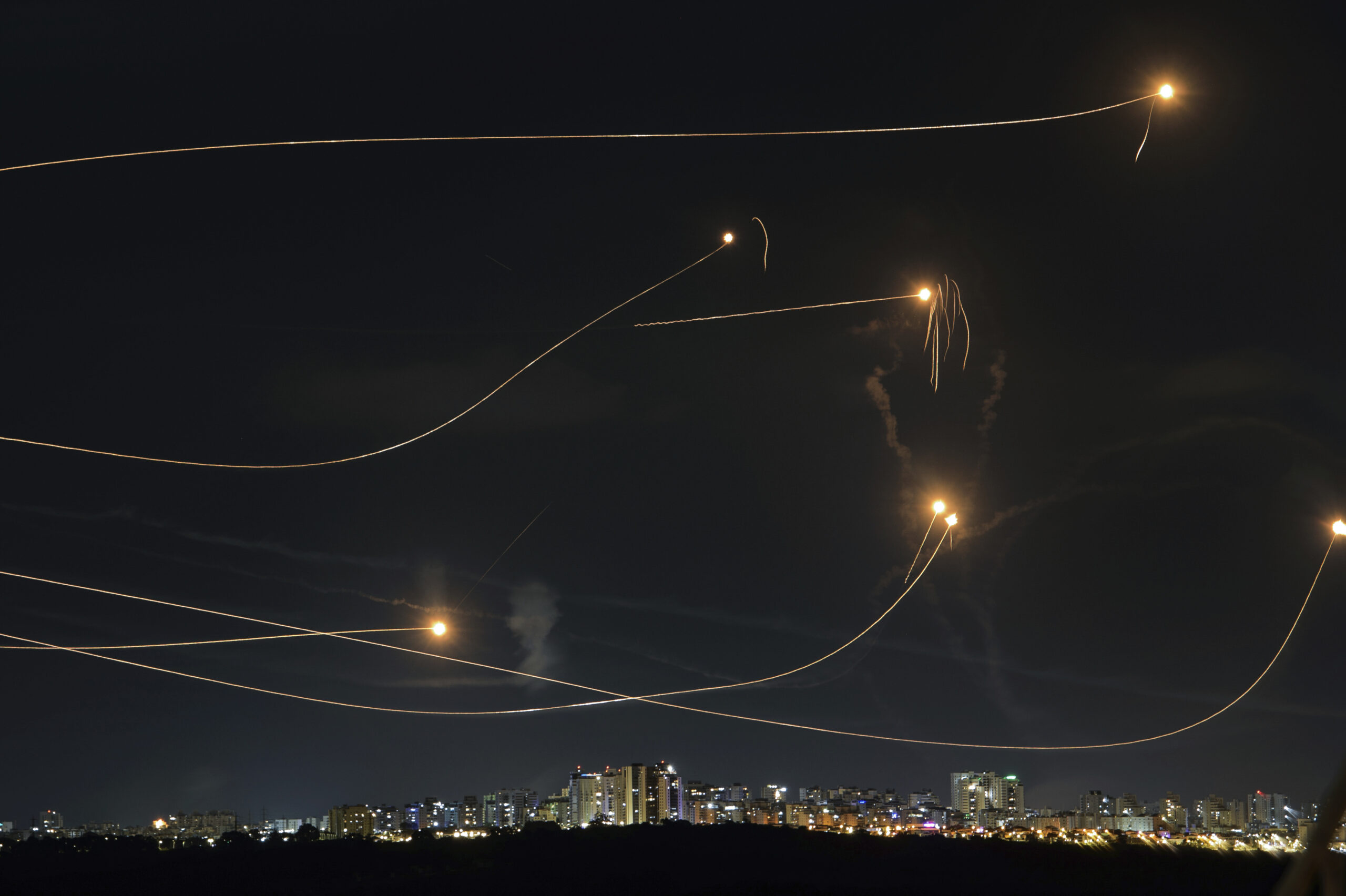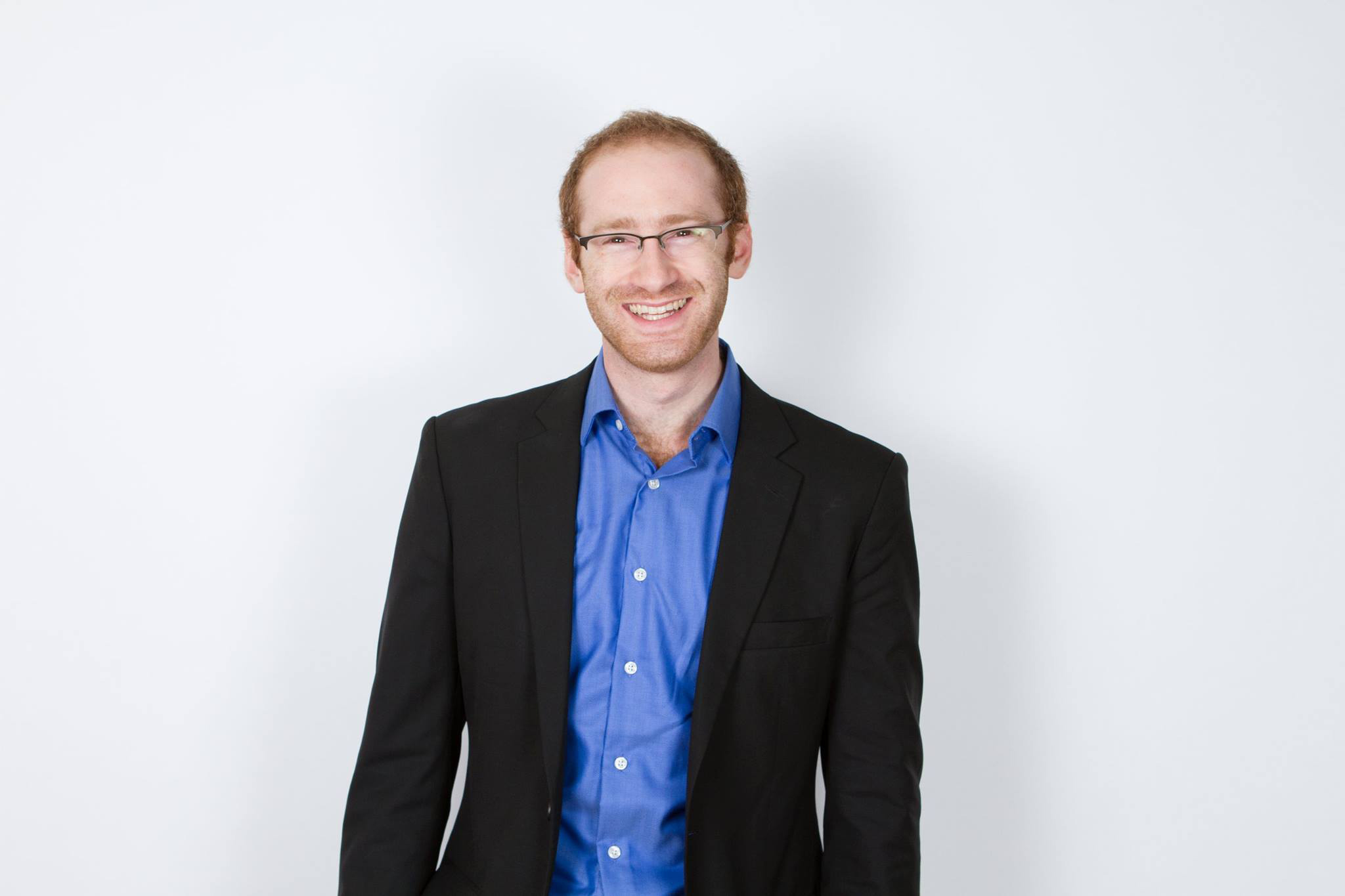
JERUSALEM (RNS) — On the morning of Oct. 7, when air raid sirens in Jerusalem warned of incoming rockets, the Jewish and Arab residents of Abu Tor, a neighborhood that skirts both East and West Jerusalem, were thrown into a state of shock. For many, that shock has turned to fear and anger as the extent of Hamas’ brutal massacre and Israel’s ensuing war against Hamas have come fully to light.
Within a day or two of the Hamas attack, the Jews and Arabs who meet weekly at a local cafe to learn and socialize in Hebrew and Arabic decided not to gather, at least for a while. Fears were too high and emotions were too raw.
“Some (Jewish) Israelis felt it wasn’t appropriate to meet” with Arabs while Israel was still burying the massacre’s victims and awaiting word of the 240 hostages Hamas had taken captive, said David Maeir-Epstein, co-founder and volunteer coordinator of the Good Neighbors Abu Tor/Al-Thuri Project. “A lot of the Palestinians in the group feared for their personal safety” at a time when far-right-wing Jewish extremists were vowing revenge against Israel’s Arab minority.
All over Israel, coexistence initiatives like the Good Neighbors Project, and the myriad other places where Jews and Arabs interact, have been navigating wartime tensions, attempting to make good on years of working to foster mutual respect.
The way forward has not been easy, especially for Arab citizens of Israel, according to Thabet Abu Rass, co-executive director of the Abraham Initiatives.
Thabet Abu Rass, co-executive director of the Abraham Initiatives. (Courtesy photo)
Within Israel — the only Jewish-majority country in the world — Arab Israelis “are between a rock and a hard place,” said Abu Rass. “The atrocity that took place on Oct. 7 and the war that came after have turned our dual identity into a test of loyalty.”
“The extreme right views us as a Fifth Column,” Abu Rass said, while at the same time, “Hamas is calling on us to join the struggle against our country, Israel. And we are refusing, because we are an integral part of Israel.”
The organization is assisting mixed Jewish-Arab municipalities like Lod, Haifa and Beersheva, where ethnic tensions have erupted in the past. As a result, each municipality has appointed a social cohesion coordinator dedicated to unity. Instead of the national campaign that proclaims “Together We Will Win,” local campaigns now proclaim “We Will Get Through the War Together.”
In a December 2023 poll of Arab citizens of Israel by the Israel Democracy Institute, 80% of Druze, 73% of Christians and 62% of Muslims said they feel part of the State of Israel, a marked increase since the war began. Arabs comprise about 2% of the Israeli population.
But many Arab Israelis feel torn over the war, Abu Rass said.

Israeli Iron Dome air defense system fires to intercept a rocket fired from the Gaza Strip, in Ashkelon, Israel, Friday, Oct. 20, 2023. (AP Photo/Avi Roccah)
“Rockets launched from Gaza cannot differentiate between Arabs and Jews in Israel. We experienced the atrocities of Oct. 7,” said Abu Rass. But in the months since, he said, Palestinian civilians have been killed by IDF military actions in Gaza.
“I have personally lost 21 relatives,” he said.
Despite the many war-related tensions within Israeli society, according to Abu Rass, “we are weathering it relatively peacefully. Jews and Arabs meet in hospitals, in universities, and hundreds of thousands of us work together or meet every day. Arabs and Jews will continue to live and work together.”
Members of the Jerusalem Youth Chorus, an acclaimed Israeli-Palestinian choir with members from East and West Jerusalem, has continued to meet regularly despite the war.
Soon after Oct. 7, the group’s leaders gathered the high schoolers and their parents and asked them if they wanted to temporarily postpone rehearsals.
“All the parents said in one voice that we need to continue, that the chorus is so important for our kids. All the kids wanted to come,” said Micah Hendler, the chorus’ founder and artistic director. In addition to choir practice, the teens participate in facilitated dialogues that encourage them to explore each other’s histories and identities.

Micah Hendler. (Courtesy photo)
Hendler described how the participants are dealing with the Hamas massacre and Israel’s military response: by listening to each other’s narratives.
“It’s easy to say, ‘You’re either with us or against us,’ but the reality is more nuanced,” Hendler said. “To build common ground we have to be able to hear what people actually mean. Israelis may support the military action but not the killing of Palestinian civilians. Palestinians with a vastly different opinion about the conflict may sincerely tell a Jew ‘I’m sorry for your family’s loss.’”
In the neighborhood of Abu Tor, which was physically divided between East and West Jerusalem until Israel captured East Jerusalem in the 1967 war, most Arabs continue to live on the eastern side, and most Jews on the western side — adjacent but not really integrated. Barriers related to culture, religion, language and ideology have traditionally prevented deeper relationships and sometimes sparked animosity.
In contrast to the 2 million Arab citizens of Israel, many Arabs in East Jerusalem are not Israeli citizens and refer to themselves as Palestinians.
A few years ago, leaders on both sides decided to create the Good Neighbors Project, which runs joint Arab-Jewish youth soccer teams, an Arabic-Hebrew-English library and a Language Café, among other community activities.
The Language Café participants, who have gradually become friends, felt they needed to take a break after Oct. 7. When, a month later, the group’s facilitators put out some feelers, “we received some ambivalent answers,” Epstein, of the Good Neighbors Project, said.
Yet, once the group reconvened, “the Café jumped back to life.”
“People were longing for normal, friendly, warm interaction, and the demand has gone up dramatically,” Epstein noted. Today, the group meets in person once a week and online once a week. Zoom participants now join from all over Israel — even a few from the West Bank city of Ramallah.
Seated in the cozy cafe on a chilly Jerusalem afternoon just after sundown, small groups of Jewish Israelis and Palestinians held animated conversations, first in Arabic and then in Hebrew. Many smiled. There was laughter.
Two university students told RNS they had joined the group to improve their Hebrew, while meeting people from other backgrounds.
“The people here are good people,” said one 20-year-old hijabi university student, who, like most of the cafe participants interviewed, requested not to be named, citing along with the others a concern that people in their respective communities might disapprove of them meeting with “the other.”
Reem, an Arab preschool teacher from the Old City of Jerusalem, was visiting the Café for the first time. She works in an international bilingual preschool.
“I’m friendly with the Jewish teachers, but my Hebrew isn’t good enough to really get to know them and the Hebrew-speaking children,” Reem said, explaining her reason for coming. “It’s time I mastered Hebrew.”
One Jewish Israeli who comes every week said she does so because she loves the conversations in both Hebrew and Arabic.
“Recently, one of the Arab women spoke about autism. She is an expert, and I learned so much.” Asked if she is ever tempted to talk about the war, she shook her head and smiled.
“This is my safe space. I prefer to talk about interesting topics with interesting people,” she said.

